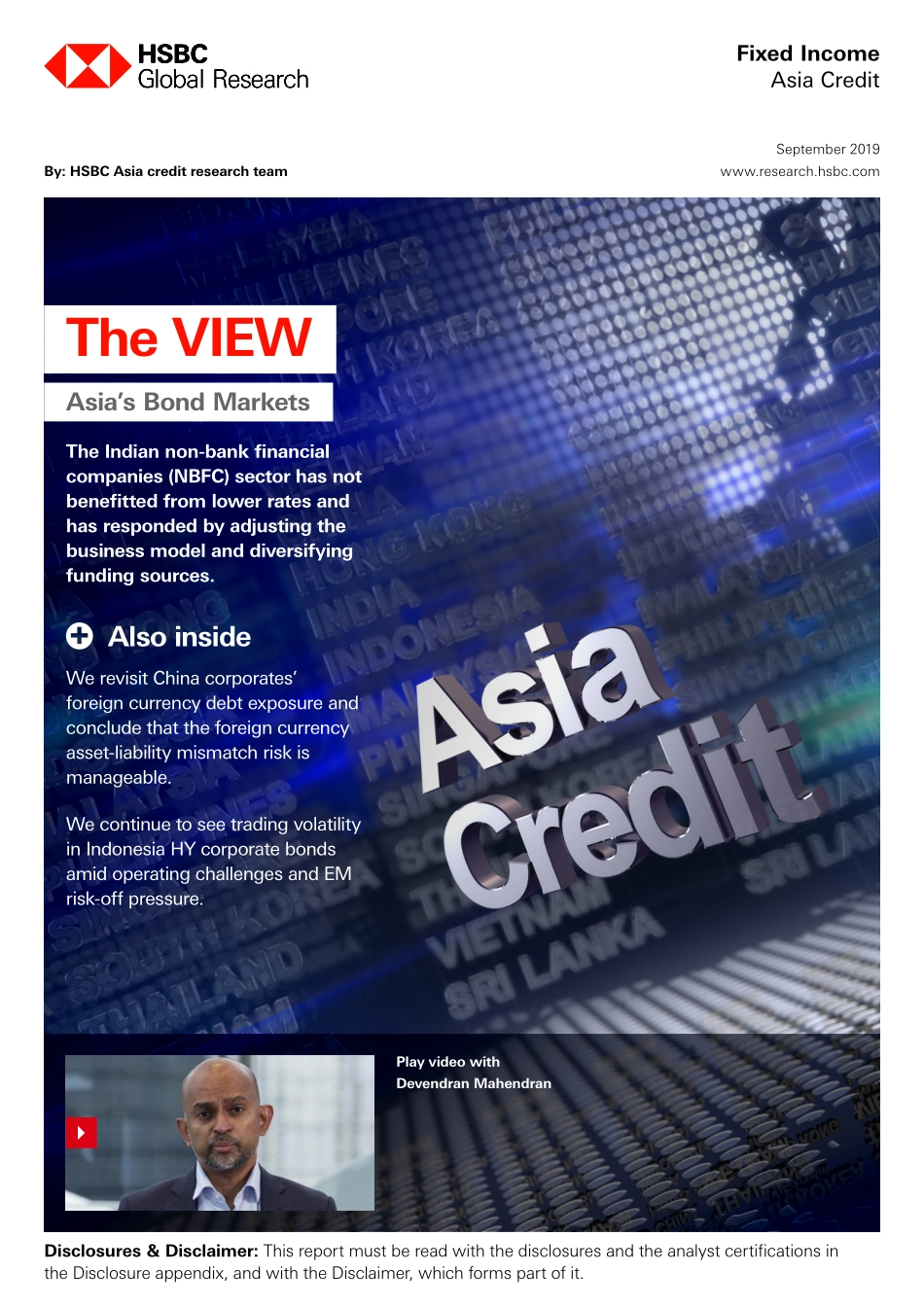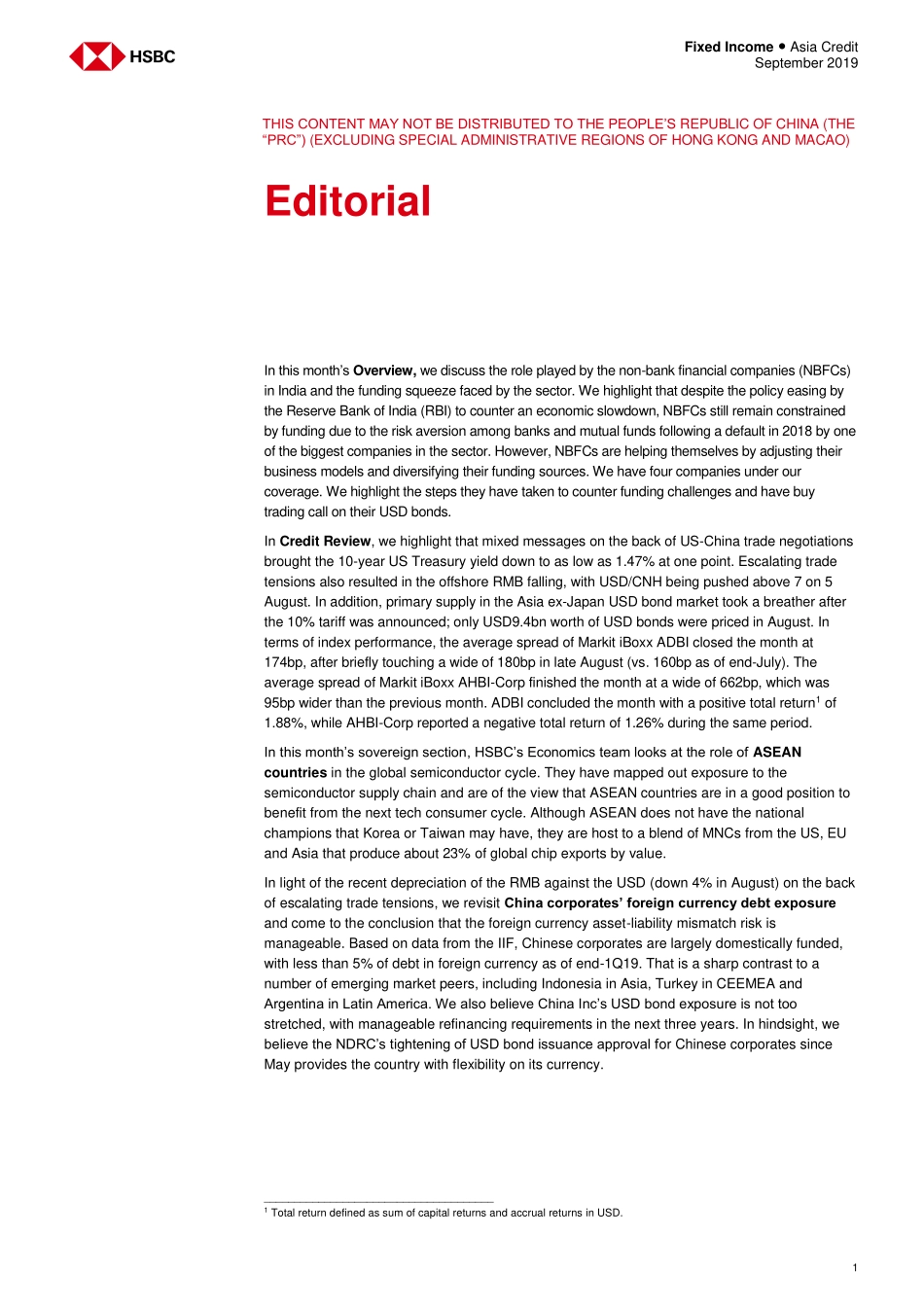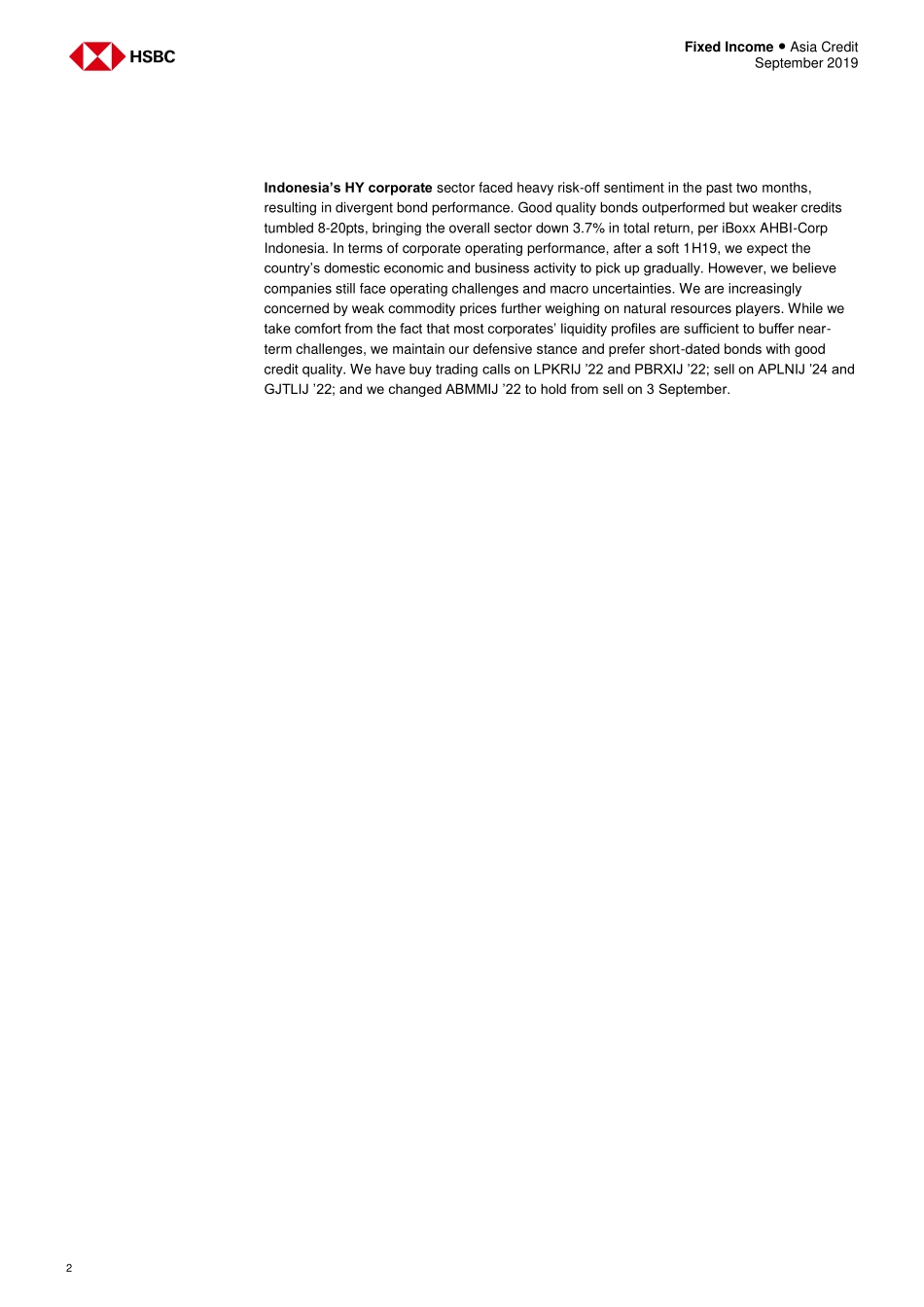www.research.hsbc.comDisclosures & Disclaimer: This report must be read with the disclosures and the analyst certifications inthe Disclosure appendix, and with the Disclaimer, which forms part of it.Play video withDevendran MahendranFixed IncomeAsia CreditSeptember 2019By: HSBC Asia credit research teamThe VIEWThe Indian non-bank financial companies (NBFC) sector has not benefitted from lower rates and has responded by adjusting the business model and diversifying funding sources. Also insideWe revisit China corporates’ foreign currency debt exposure and conclude that the foreign currency asset-liability mismatch risk is manageable.We continue to see trading volatility in Indonesia HY corporate bonds amid operating challenges and EM risk-off pressure.Asia’s Bond Markets 1 Fixed Income ● Asia Credit September 2019 In this month’s Overview, we discuss the role played by the non-bank financial companies (NBFCs) in India and the funding squeeze faced by the sector. We highlight that despite the policy easing by the Reserve Bank of India (RBI) to counter an economic slowdown, NBFCs still remain constrained by funding due to the risk aversion among banks and mutual funds following a default in 2018 by one of the biggest companies in the sector. However, NBFCs are helping themselves by adjusting their business models and diversifying their funding sources. We have four companies under our coverage. We highlight the steps they have taken to counter funding challenges and have buy trading call on their USD bonds. In Credit Review, we highlight that mixed messages on the back of US-China trade negotiations brought the 10-year US Treasury yield down to as low as 1.47% at one point. Escalating trade tensions also resulted in the offshore RMB falling, with USD/CNH being pushed above 7 on 5 August. In addition, primary supply in the Asia ex-Japan USD bond market took a breather after the 10% tariff was announced; only USD9.4bn worth of USD bonds were priced in August. In terms of index performance, the average spread of Markit iBoxx ADBI closed the month at 174bp, after briefly touching a wide of 180bp in late August (vs. 160bp as of end-July). The average spread of Markit iBoxx AHBI-Corp finished the month at a wide of 662bp, which was 95bp wider than the previous month. ADBI concluded the month with a positive total return1 of 1.88%, while AHBI-Corp reported a negative total return of 1.26% during the same period. In this month’s sovereign section, HSBC’s Economics team looks at the role of ASEAN countries in the global semiconductor cycle. They have mapped out exposure to the semiconductor supply chain and are of the view that ASEAN countries are in a good position to benefit from the next tech consumer cycle. Although ASEAN does not have the national champions that Korea or Taiwan may have, they are host to a blend of MNCs fr...


